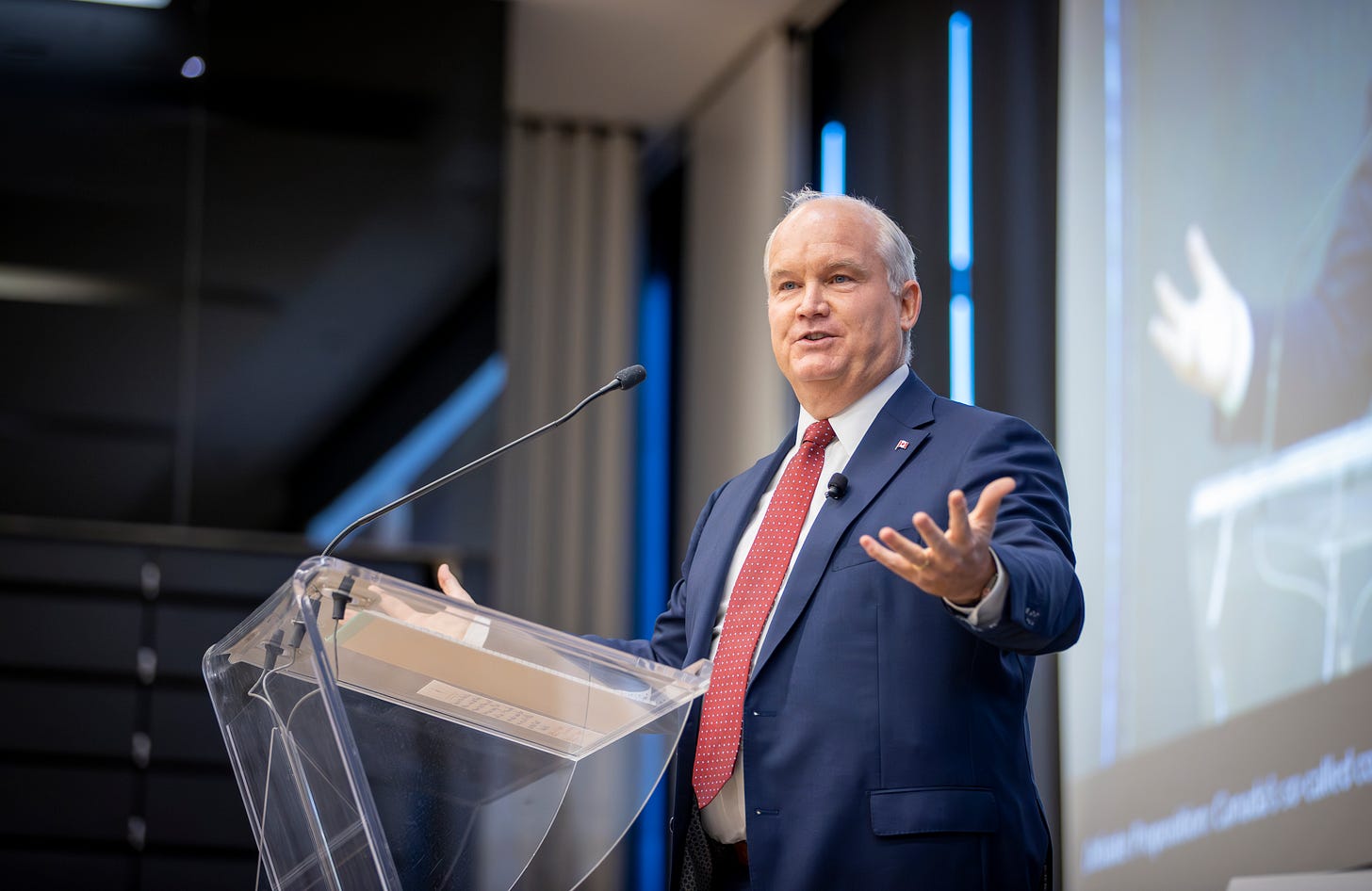"Let’s not demonize our oligarchs, let’s empower them:" Erin O'Toole
Former Conservative party leader scores a victory of sorts at a debate over whether Canada's oligopolies are holding the country back
TORONTO – Both sides of a public debate on whether oligopolies are holding Canada back were able to claim a share of victory Wednesday evening.
On the one hand, the team of Competition Bureau deputy commissioner Anthony Durocher and Canadian Anti-Monopoly Project co-founder Robin Shaban convinced 62 per cent of the audience of around 300 attendees that oligopolies are indeed harmful.
On the other hand, that share was down from 68 per cent at the beginning of the event, part of the University of Toronto’s Rotman Debate series. The duo arguing against the harmful effects of oligopolies – Tory’s competition lawyer Dany Assaf and former federal Conservative party leader Erin O’Toole – managed to sway a good number of undecided listeners over the course of the night.
That shift led the moderator, Global News reporter Anne Gaviola, to declare Assaf and O’Toole the winners, despite the pro- side garnering nearly two-thirds of the votes.
In addressing the debate’s main conceit – “Canada’s so-called corporate ‘oligopolies’ are standing in the way of a dynamic Canadian economy” – Durocher and Shaban drew on Competition Bureau studies that have shown decreased business dynamism, fewer startups entering and exiting the market, and increased prices and profits in concentrated industries.
Durocher pointed out that the average founding year of the 20 biggest Canadian companies is 1916, suggesting that new firms are finding it difficult to enter and grow. “What does that say about the state of competition?”
Shaban said that decisions about what products and services Canadians can access and how much they pay for them are being made in increasingly few board rooms. This concentration is holding back productivity, which determines how hard Canadians work and what they earn, and is fuelling the affordability crisis.
“That’s not a market economy, it’s an oligarchy,” Shaban said. “Dynamism isn’t just about the economy, it’s about our freedom.”
In his counter argument, O’Toole didn’t dispute that Canada has oligopolies, but rather that they are – and always have been – necessary for national sovereignty.
Canada’s first monopoly, CP Rail, was established in the 19th century to connect the country and help defend against U.S. incursion. That need is just as pressing today with the U.S. trade war and talk of annexation, he argued, so big national champions are still needed.
“Let’s not demonize our oligarchs, let’s empower them,” he said. “It’s okay to have national champions and it’s okay to regulate them.”
Assaf also pointed out that technological advances routinely dislodge and disrupt top market players, referencing the recent Google U.S. antitrust case in which the judge refrained from imposing serious penalties because of fast-rising artificial intelligence firms that could make the company obsolete.
“That’s how ephemeral market power can be,” he said.
The against- side used props including a Molson beer can and a VHS cassette tape, as well as hockey anecdotes and even O’Toole singing a Gordon Lightfoot song to illustrate their points, prompting some frustration from their opponents.
“They’re countering hard data with hockey and nostalgia,” Durocher quipped. After the largely friendly debate, Shaban acknowledged that Assaf and O’Toole successfully appealed to the audience’s fear of the United States. “It really shows you the power of storytelling.”
In arguing against the harmful effects of oligopolies, O’Toole – who left politics in 2023 for a managing director role with risk advisory firm ADIT North America – does not appear to align with current Conservative party competition priorities.
In their most recent election platform, released in April under current leader Pierre Poilievre, the Conservatives promised to “launch an oligopoly review of key federally-regulated sectors to increase competition and lower costs for Canadians.”
(Photo courtesy of Rotman Debate)




Is preventing foreign companies from owning too much of Canada the primary reason to be pro-oligopoly? If so, then aren’t there other ways to do it?
Supply management is one path, which has its own problems. What else can we do?